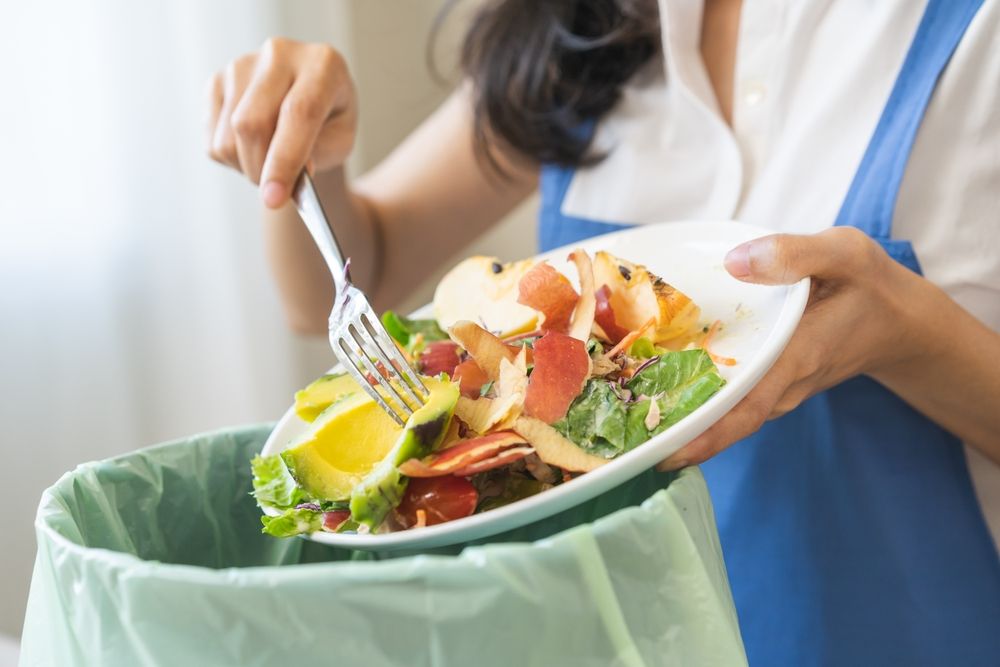
Welcome to our latest guide on how to pinch those pennies and protect the planet by reducing food waste! With the cost of living rising and more awareness about the environmental impact of food waste, it’s never been more important to get savvy with our shopping, cooking, and eating habits. In this guide, we’ll share some practical tips and recipes that will help you save money while doing your bit for the environment. Let’s embark on this delicious journey to a more sustainable and wallet-friendly lifestyle!
Understanding Food Waste and Its Impacts
Before diving into the tips and recipes, let’s get a grip on what food waste really entails and why it’s a pressing issue. Every year, an enormous amount of food is thrown away, and it’s not just an economic problem—it’s an environmental one too. When food ends up in landfill, it decomposes anaerobically, releasing methane, a greenhouse gas far more potent than carbon dioxide. By understanding the scale and impact of food waste, we can take meaningful steps to curb it.
Reducing food waste starts with buying what you need, storing it correctly, and using up leftovers creatively. It’s about planning your meals, getting to know storage techniques, and embracing the art of repurposing foods. With a little bit of knowledge and effort, you can make a big difference both to your wallet and to the planet.
Smart Shopping Strategies
One of the most effective ways to reduce food waste is to shop smarter. This means planning your meals for the week and writing a shopping list based on what you actually need. Resist the urge to buy items just because they are on sale, unless you’re certain you will use them.
Another tip is to understand food labels. ‘Best before’ and ‘Use by’ dates are not the same; ‘Best before’ is about quality, whereas ‘Use by’ is about safety. Often, foods are still good to eat after the ‘Best before’ date. Additionally, try to buy loose fruits and vegetables instead of pre-packaged ones. This allows you to buy the exact amount you need and often saves money as you’re not paying for the packaging.
Shopping at local farmers’ markets can also be a great way to reduce waste. You can buy fresh, seasonal produce that hasn’t traveled long distances, and you’re more likely to use it quickly because it’s at its peak flavor and nutrition. Plus, you’ll be supporting your local economy!
The Art of Food Storage
Proper food storage can significantly extend the life of your groceries. Knowing where and how to store different types of food can prevent spoilage and waste. For instance, keeping your fridge set to the right temperature, usually between 37°F to 40°F (3°C to 5°C), can help preserve perishables.
Fruits and vegetables often have specific storage needs; some do better at room temperature while others need refrigeration. For example, tomatoes lose their flavor in the fridge, and onions can last for months in a cool, dark place. Herbs can either be frozen, dried, or stored in water like a bouquet to keep them fresh longer.
Using airtight containers or vacuum-sealing can also make a big difference in the shelf life of your food. Freezing is another fantastic option for many foods, including bread, meat, and even dairy products like cheese and milk. Just make sure to label and date everything so you can keep track of what needs to be used up first.
Creative Use of Leftovers
Leftovers are not just remnants of previous meals; they are opportunities for culinary creativity! Instead of letting them languish in the back of the fridge, consider leftovers as ingredients for your next meal. You can turn last night’s roasted vegetables into a hearty frittata or blend them into a comforting soup.
Stale bread is a goldmine for savvy savers. It can be transformed into croutons, breadcrumbs, or even used in recipes like panzanella (bread salad) and ribollita (Tuscan soup). Leftover rice can become the base for a stir-fry or a sweet rice pudding. The key to making the most of leftovers is to see them as versatile components rather than fixed dishes.
Get into the habit of doing a regular ‘fridge forage’ before you shop for groceries. Look for items that need to be used up and brainstorm ways to incorporate them into your meal plan. This not only saves money but also sparks creativity in the kitchen.
Recipes for Reducing Waste
Now, let’s get to the exciting part—recipes that help reduce food waste! There are countless dishes that are perfect for using up odds and ends that might otherwise be thrown away. For example, a ‘kitchen sink’ frittata or omelet can accommodate almost any vegetable, cheese, or cooked meat you have on hand.
For something sweet, consider a ‘fruit rescue’ crumble, using up any fruit that’s starting to go soft. Simply top with an oaty crumble mixture and bake until golden. Another fantastic recipe is vegetable stock, which can be made from virtually any vegetable scraps you have. Simmer them with water, and perhaps some herbs and spices, then strain for a flavorful base for soups and stews.
Smoothies are another wonderful way to use up ripe fruit. Combine them with some yogurt or juice, and maybe a handful of spinach or kale that’s nearing its end, and you have a nutritious drink. Lastly, pestos and sauces can be made from wilting herbs, greens, and nuts, turning them into delicious spreads or pasta accompaniments.
Reducing food waste is a delicious challenge that benefits your wallet and the world. By shopping smart, storing food properly, getting creative with leftovers, and cooking with an eye toward sustainability, you can make a big difference. The journey to less food waste is not just about being mindful—it’s about enjoying the process of creating new, flavorful meals from what you already have. Embrace these tips and recipes, and you’ll be on your way to a more sustainable kitchen in no time!
